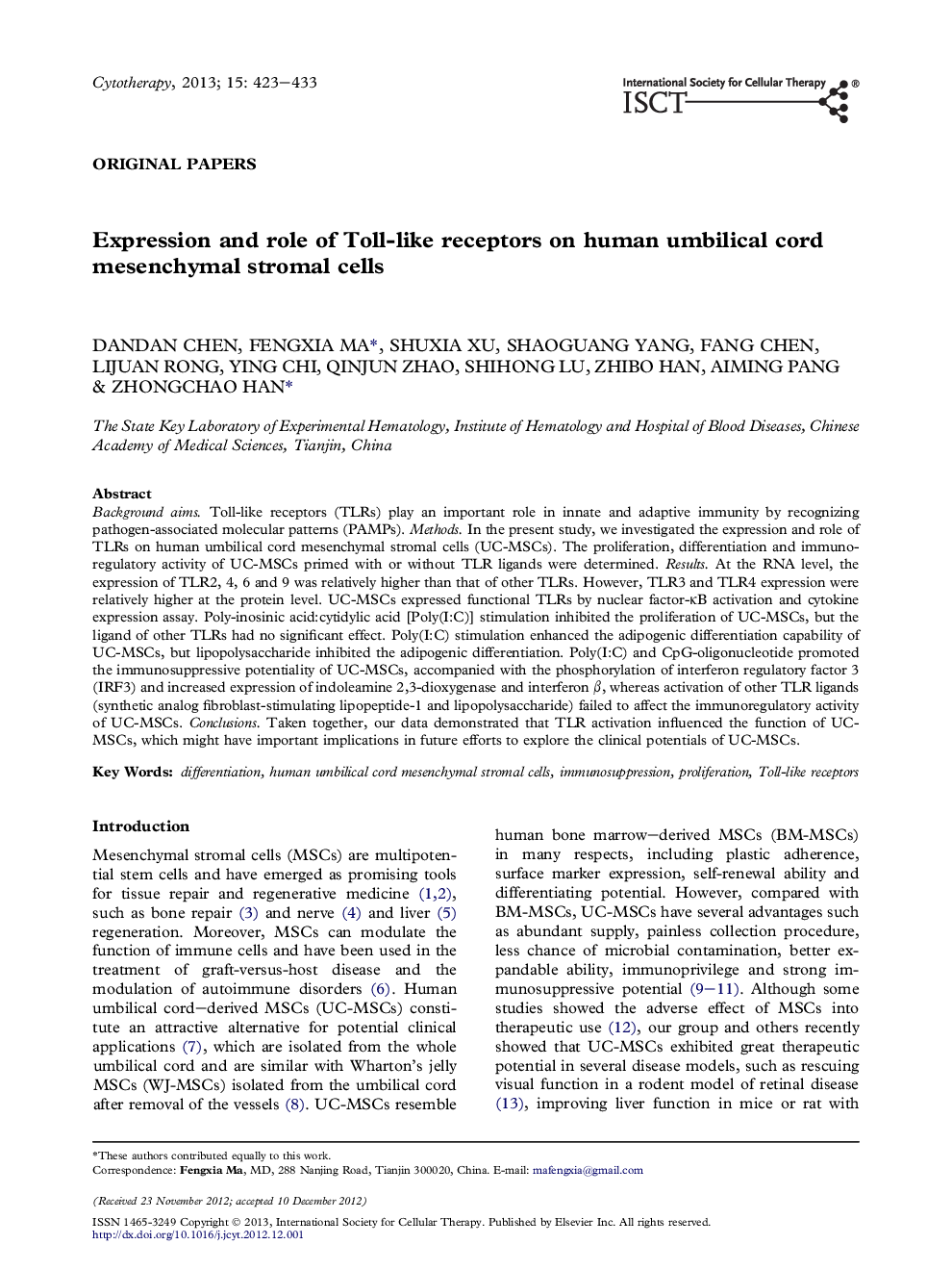| Article ID | Journal | Published Year | Pages | File Type |
|---|---|---|---|---|
| 2171262 | Cytotherapy | 2013 | 11 Pages |
Background aimsToll-like receptors (TLRs) play an important role in innate and adaptive immunity by recognizing pathogen-associated molecular patterns (PAMPs).MethodsIn the present study, we investigated the expression and role of TLRs on human umbilical cord mesenchymal stromal cells (UC-MSCs). The proliferation, differentiation and immunoregulatory activity of UC-MSCs primed with or without TLR ligands were determined.ResultsAt the RNA level, the expression of TLR2, 4, 6 and 9 was relatively higher than that of other TLRs. However, TLR3 and TLR4 expression were relatively higher at the protein level. UC-MSCs expressed functional TLRs by nuclear factor-κB activation and cytokine expression assay. Poly-inosinic acid:cytidylic acid [Poly(I:C)] stimulation inhibited the proliferation of UC-MSCs, but the ligand of other TLRs had no significant effect. Poly(I:C) stimulation enhanced the adipogenic differentiation capability of UC-MSCs, but lipopolysaccharide inhibited the adipogenic differentiation. Poly(I:C) and CpG-oligonucleotide promoted the immunosuppressive potentiality of UC-MSCs, accompanied with the phosphorylation of interferon regulatory factor 3 (IRF3) and increased expression of indoleamine 2,3-dioxygenase and interferon β, whereas activation of other TLR ligands (synthetic analog fibroblast-stimulating lipopeptide-1 and lipopolysaccharide) failed to affect the immunoregulatory activity of UC-MSCs.ConclusionsTaken together, our data demonstrated that TLR activation influenced the function of UC-MSCs, which might have important implications in future efforts to explore the clinical potentials of UC-MSCs.
